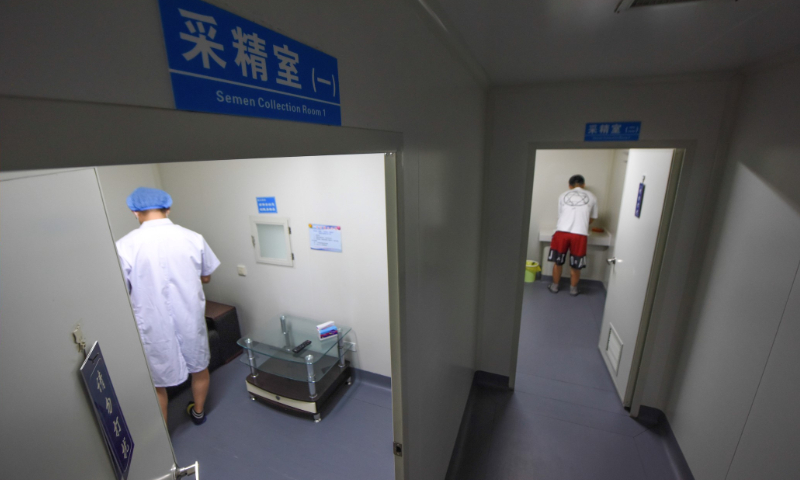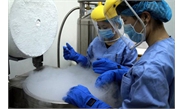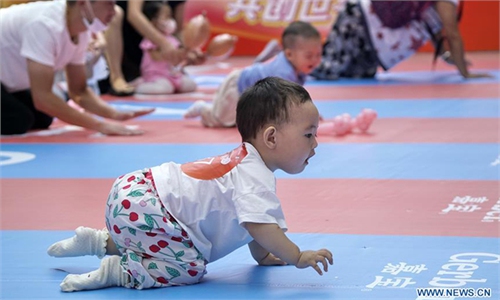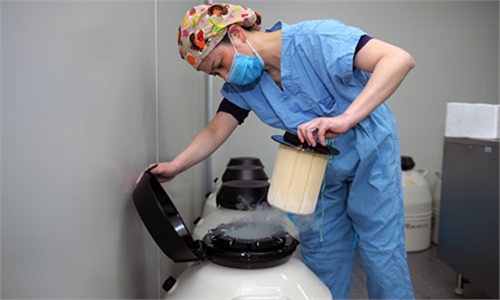College students in Zhengzhou compete for sperm quality, with highest allowance of $837

Semen collection rooms at Shanxi Province Human Sperm Bank in Taiyuan city, North China’s Shanxi Province Photo: IC
Male college students in Zhengzhou, Central China's Henan Province, will compete in a sperm-quality competition, participants of which could claim an allowance of up to 6,100 yuan ($837). The competition has been set up as a move to encourage sperm donation from local young people.
According to the statement from the official WeChat account of Henan Province Human Sperm Bank, the event will have a winner by evaluating the concentration, motility, volume, sperm malformation rate and the comprehensive power of their sperm.
Joining the competition will be free of charge and winners could even be awarded up to 6,100 yuan.
The competition result will be anonymously announced in the form of data, according to the sperm bank.
Many college students from Zhengzhou, left their real names under the statement online and express their readiness for the sperm competition and donation.
One of them who claimed to be a student from Zhengzhou University asked for likes from other netizens and claimed that he would donate the amount of sperm according to how many "likes" he gained from the netizens.
An employee from the sperm bank told media that the purpose of the competition is to call for more college student to donate their sperm since their sperm quality is better.
According to the employee, the donation process will last two to three months and the donors have to live in Zhengzhou in a long term.
The employee advised the donors to make appointment in advance since there is a daily quota for sperm donation.
As of the end of 2022, there were 29 sperm banks across the country. In February, sperm banks in multiple places across the country called for donation from the local college students and the topic of "less than 20 percent of the donors' sperm being qualified for sperm donation" aroused heated discussions.
Global Times



